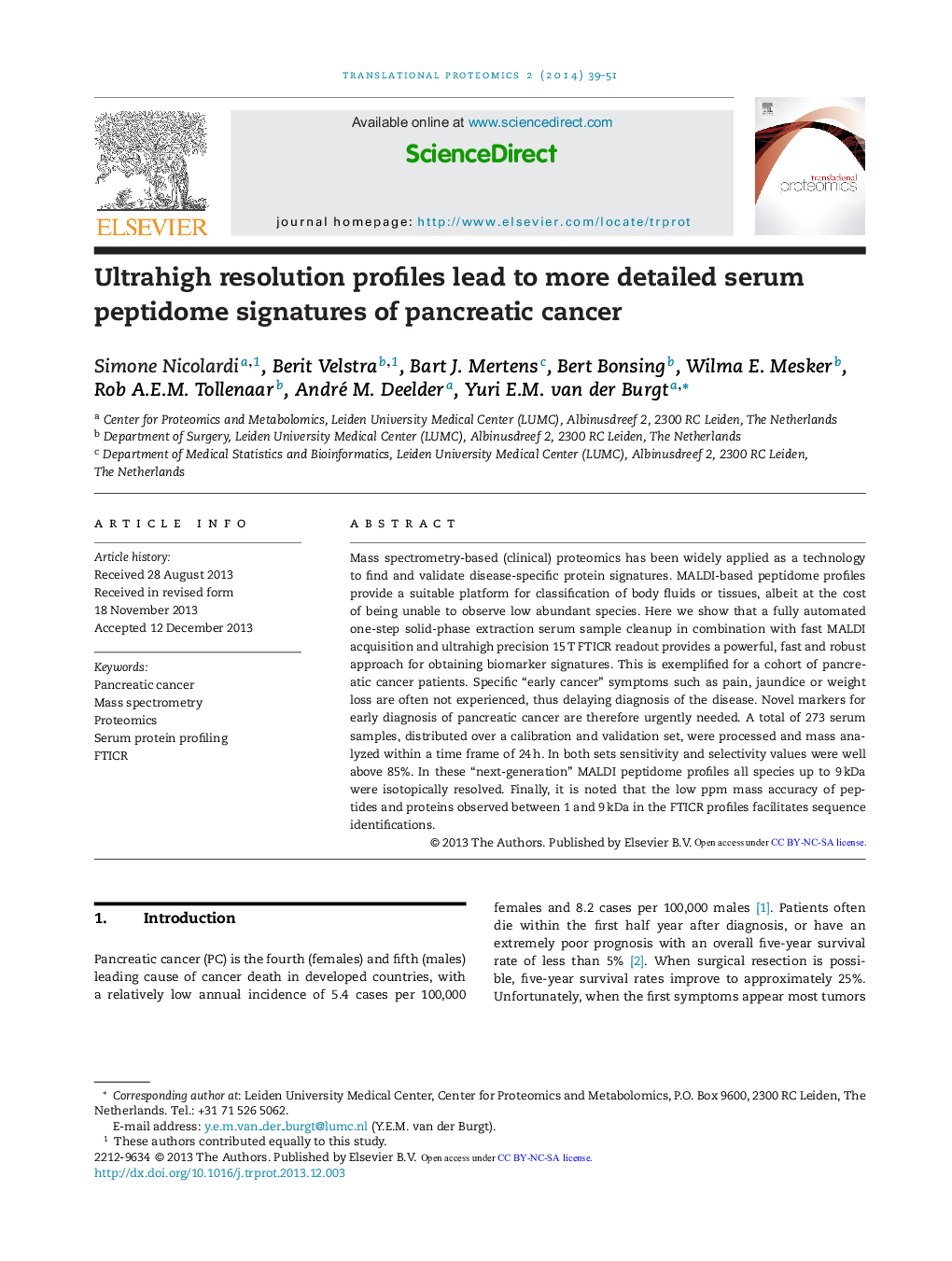| Article ID | Journal | Published Year | Pages | File Type |
|---|---|---|---|---|
| 2030450 | Translational Proteomics | 2014 | 13 Pages |
•Automated one-step solid-phase extraction of 273 serum samples followed by fast and ultraprecise MALDI-FTICR peptide profiling.•All species up to 9 kDa were isotopically resolved in these “next-generation” MALDI peptidome profiles.•Sensitivity and selectivity values for pancreatic cancer were well above 85%.
Mass spectrometry-based (clinical) proteomics has been widely applied as a technology to find and validate disease-specific protein signatures. MALDI-based peptidome profiles provide a suitable platform for classification of body fluids or tissues, albeit at the cost of being unable to observe low abundant species. Here we show that a fully automated one-step solid-phase extraction serum sample cleanup in combination with fast MALDI acquisition and ultrahigh precision 15 T FTICR readout provides a powerful, fast and robust approach for obtaining biomarker signatures. This is exemplified for a cohort of pancreatic cancer patients. Specific “early cancer” symptoms such as pain, jaundice or weight loss are often not experienced, thus delaying diagnosis of the disease. Novel markers for early diagnosis of pancreatic cancer are therefore urgently needed. A total of 273 serum samples, distributed over a calibration and validation set, were processed and mass analyzed within a time frame of 24 h. In both sets sensitivity and selectivity values were well above 85%. In these “next-generation” MALDI peptidome profiles all species up to 9 kDa were isotopically resolved. Finally, it is noted that the low ppm mass accuracy of peptides and proteins observed between 1 and 9 kDa in the FTICR profiles facilitates sequence identifications.
Graphical abstractFigure optionsDownload full-size imageDownload as PowerPoint slide
